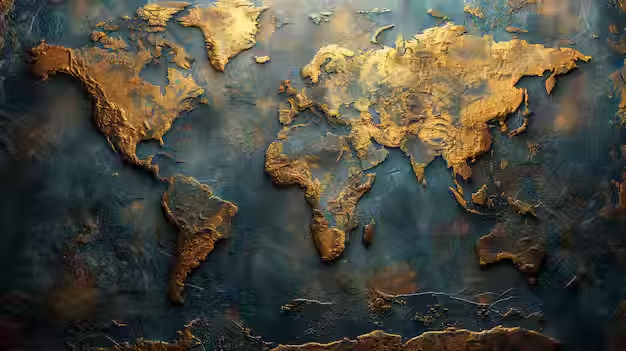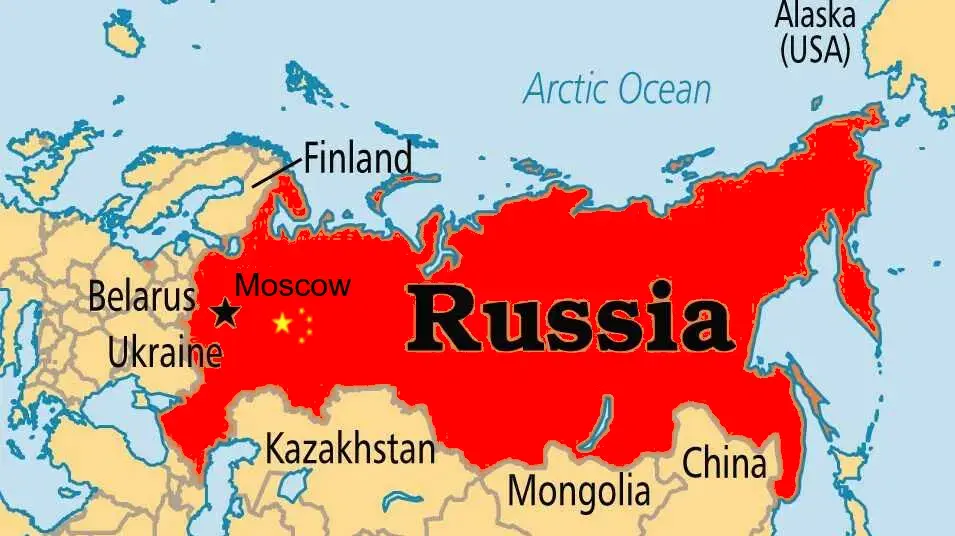Will Trump's Leadership Prevent a Third World War?
- wideozero
- Mar 12, 2025
- 4 min read
In a world that feels increasingly unstable, many people are worried that we might be on the edge of a third world war. Different global crises are unfolding, raising the question: Can Donald Trump’s leadership help keep us from such a disaster? This post looks at how Trump’s time in office, with its unique approach to international relations and policy, might influence our global situation today.

Understanding Global Tensions
Global conflicts have reached alarming levels due to several key factors. These include the growth of nuclear weapons, ongoing regional disputes, and economic uncertainty. Nationalistic movements are on the rise, and traditional diplomatic methods seem to be declining.
For instance, between 2014 and 2021, military spending worldwide increased by an average of 3% annually, reflecting the urgent need for nations to bolster their defense capabilities. As nations display aggressive postures, the role of U.S. leadership—especially someone like Trump—becomes crucial.
Trump's Foreign Policy Touch
Trump’s foreign policy was famously dubbed "America First." This philosophy centered on prioritizing U.S. interests, often leading to a confrontational attitude towards international rivals. Notably, Trump withdrew from significant agreements like the Paris Climate Accord and the Iran Nuclear Deal. Critics argue these decisions could provoke hostility among global players, while supporters believe that a strong focus on U.S. interests might foster a more secure environment.
For example, in 2018, Trump announced the U.S. exit from the Iran Nuclear Deal. This led Iran to resume its nuclear activities, increasing tensions in the Middle East and prompting neighboring countries to enhance their military readiness.
A Different Kind of Diplomacy
One of Trump's distinct diplomatic strategies was to directly engage with adversaries. His meetings with North Korean leader Kim Jong-un were unprecedented. While this could potentially reduce nuclear tensions, it also raised concerns. Some critics argue this direct engagement may be seen as a sign of weakness, encouraging antagonistic behaviors from rival states.
In 2019, after the second summit with Kim, North Korea launched several short-range missiles. This highlighted the delicate balance of Trump’s unconventional tactics.
The Importance of Alliances
To understand the potential for avoiding a third world war, it’s critical to examine international alliances. During his presidency, Trump often questioned the value of long-established U.S. partnerships like NATO. He consistently criticized member nations for not investing enough in their defense budgets, which stirred doubts about the loyalty and reliability of these alliances.
While some believe that stressing burden-sharing among allies is essential for long-term sustainability, this rhetoric could weaken partnerships. For example, in 2018, NATO defense budgets increased by about 3.9%, largely in response to Trump’s urging. However, this uncertainty could encourage adversaries to take aggressive actions.
Domestic Challenges and Foreign Policy
Trump's leadership faced significant domestic challenges, including political divisions and social unrest. These internal issues heavily influence foreign policy. A government perceived as unstable can lose international clout. Allies may hesitate to rely on such a nation for support.
In 2020, anti-racism protests and a politically charged atmosphere became prominent in the U.S. This unrest could lead to a decline in perceived national stability, making allies question their partnership with the U.S.
Conversely, a united domestic front can project strength and reliability on the global stage. Understanding how domestic politics impact international relations is crucial in evaluating Trump's role in reducing conflict risks.

Economic Instability as a Catalyst
Economic factors often play a significant role in times of conflict. Trump's trade policies, particularly tariffs on China, led to a noticeable strain in relations between two of the world's largest economies. The trade war saw a rise in tariffs from an initial 10% to as high as 25%, affecting consumers and businesses on both sides.
Such economic strain has global implications. Disruptions can lead to instability, making military conflict more likely. For instance, a 2021 study by the National Bureau of Economic Research indicated that trade wars could increase the likelihood of military confrontations, emphasizing the need for constructive economic collaborations.
Communication Matters in Leadership
A leader's communication style greatly impacts their effectiveness. Trump's frequent use of social media, especially Twitter, created a mix of support and controversy. His sudden announcements often brought uncertainty to international relations.
For effective diplomacy, a structured and cautious communication method is necessary. The tone and messages from a leader can either alleviate or heighten tensions, making this an essential aspect of maintaining peace.
Looking Toward the Future
As we consider the potential for preventing a third world war, it is essential to analyze the broader context. Trump’s unconventional diplomatic style may disrupt traditional practices, but it also offers opportunities for new approaches to conflict resolution.
If Trump remains influential—through political office or other means—his ability to forge beneficial relationships will be crucial. The world is changing, and effective leadership must adapt to meet new challenges.
The Path Ahead
With rising global tensions, leaders like Donald Trump play a vital role in shaping our future. Whether his strategies will promote peace or fuel conflict is still an active debate. Ultimately, the ability of any leader to guide nations away from war depends on their adaptability in a rapidly changing world.
It is crucial to maintain open dialogue, respect alliances, and prioritize diplomacy over aggression. Every decision made carries significant consequences, making it vital for leaders to recognize the weight of their responsibilities in today’s intricate international landscape.
The future of global peace hinges on careful, informed leadership that understands the vital importance of collaboration and stability.
Questions to comment
Does Trump is elected to influence to not happen on third world war?
What can cause third world war?
What are chances of Russia and China in third world war?
Will be any changes globally after Trump as president?
What to do to never people think about third world war?
The Wideozero team is glad to heare your opinions



Comments